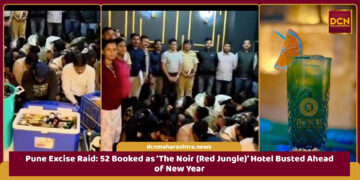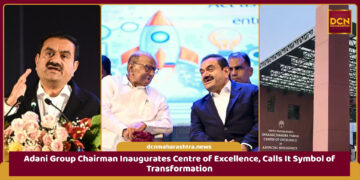Special Correspondent
Pune: The city of Pune and its surrounding regions may face a potential water crisis unless the canal committee convenes soon to finalize water allocation plans for drinking, agriculture, and industrial needs. With the current dam storage expected to sustain the city until the next monsoon, strategic planning is crucial to avoid water shortages during the upcoming hot summer months.
The Khadakwasla, Temghar, Varasgaon, and Panshet dams collectively hold 19.35 TMC of water, which is 66.36% of their total storage capacity. This year, Khadakwasla project storage has 1.79 TMC more water compared to last year. Despite the favorable storage, poor water management and lack of timely decision-making could lead to a crisis.
Canal Committee Delay Raises Concerns
While a district planning committee meeting was recently chaired by guardian minister and deputy chief minister Ajit Pawar, there is still no clarity on when the crucial canal committee meeting will be held. This meeting is essential for deciding water distribution for agriculture and ensuring adequate reserves for drinking water.
Typically, such planning occurs by October 15 each year. However, the 2024 assembly elections disrupted the schedule, and by January 2025, no meeting had taken place. This delay has left residents and farmers anxious about water availability for the coming months.
The Khadakwasla project supplies drinking water to Pune and its surrounding talukas, including Daund, Indapur, and Baramati. Proper allocation must account for urban and rural drinking water needs, irrigation cycles, evaporation losses, and panchayat demands.
Priority Water Categories and Conservation Measures
The government prioritizes water allocation as follows: drinking water first, followed by agriculture and industries. Recent erratic monsoons have further highlighted the need for careful planning to avoid shortages.
Experts urge the Pune Municipal Corporation (PMC) to implement stricter water conservation measures, including:
Reducing water wastage
Promoting rainwater harvesting
Fixing leakages in the supply system
Additionally, the state government must proactively ensure timely decisions on water allocation to prevent severe shortages during summer.
Long-Term Solutions Needed
Given Pune’s growing urbanization and rising water demand, experts stress the need for long-term water management strategies. These could include exploring alternative water sources like wastewater recycling and desalination to reduce dependency on dam water.
Until the canal committee meeting is scheduled and decisions are made, authorities are urging residents to use water judiciously and prepare for potential supply disruptions. Pune’s residents and agricultural communities are hoping for swift action to secure their water needs for the coming months.














